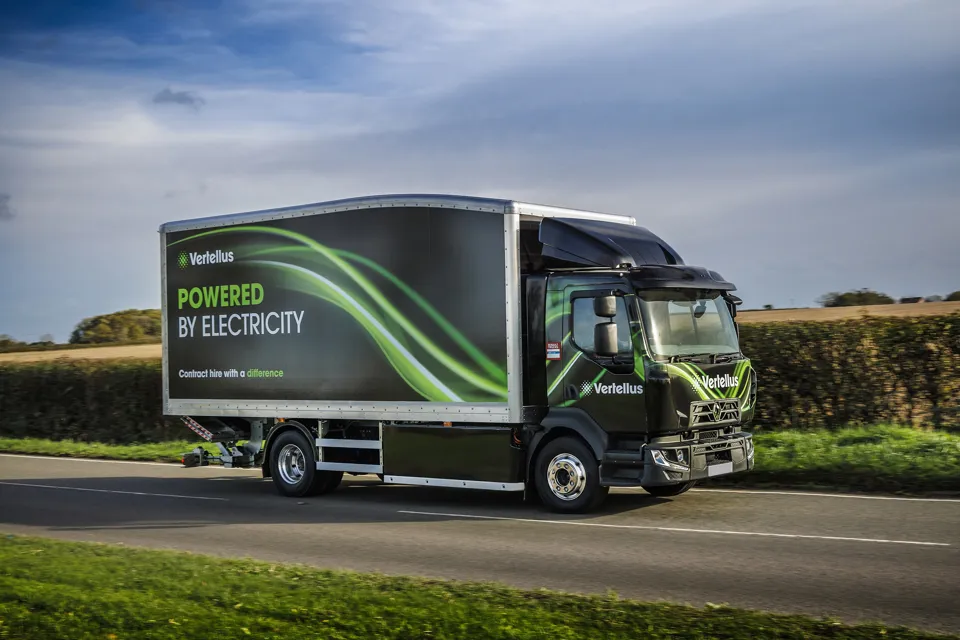Renault Trucks will be rolling out 94kWh batteries later this year, potentially doubling the range of its full electric trucks.
The upgraded packs, back by a warranty of up to 10 years, will be an optional extra to the current 46kWh packs which offer range of up to 186 miles for the T and C model line ups.
“These batteries will make a real difference,” said Renault Trucks managing director Carlos Rodrigues. “They could fulfil 90% of operations with a single daily charge.”
Renault Trucks anticipates demand for electric trucks will start to accelerate from 2025 as it commits to converting half of its annual registrations to full electric by 2030. It currently sells around 3,500 units a year.
The transition plan will be assisted by the EV Discovery programme, launched last November in conjunction with joint venture leasing partner Vertellus and battery supplier Zenobe.
Following a dealer roadshow, during which more than 300 potential customers in the public and private sectors experienced its electric trucks, Renault is now offering fleets a three-month trial of electric trucks, with 30 chosen from the range: 10 rigids, 10 curtain-siders and 10 refrigerated units.
Ian Seagar, business development director at Vertellus, said: “The principle is to give customers the opportunity to do their own research: they get the telematics data and will be able to go back to their board to make the business case relevant to their needs.”
Drivers at the pilot fleets receive training to enable them to get the best out of the electric trucks, while Zenobe provides the charging infrastructure.
“Customers find it very easy because it’s one package: the truck, the charger and the training,” said Rodrigues.
Options include 60kW trickle charging and a 120kW unit, which fully charges a truck in less than two hours.
The three-month test programme is still in the early stages, although feedback from drivers has been positive. It is also reinforcing Renault Trucks’ knowledge of the seasonal variations in range which can typically drop by 10-20% in cold weather.
“Our response is to make sure the customer can operate their business,” Rodrigues said. “We don’t introduce risk; we communicate it to the customer – they have to be able to make money from the trucks.”
Seagar added: “Fleets are able to ease themselves in with no risk. We are finding they are making one or two orders to begin with as they build up their skill sets. The battery technology is developing at a pace, so they don’t want to move too quickly, but this is the time to engage – they can’t leave it to the last minute.”
Adopting electric trucks can have immediate benefits, particularly with the Scope 3 element of the Greenhouse Gas Protocol which requires companies to take into consideration emissions from their supply chain.
“Big customers have to show decarbonisation in their supply chain, so their suppliers have to have solution,” said Rodrigues. “We’ve already seen fleets pick up business purely because they are trialling electric trucks.”




















Login to comment
Comments
No comments have been made yet.